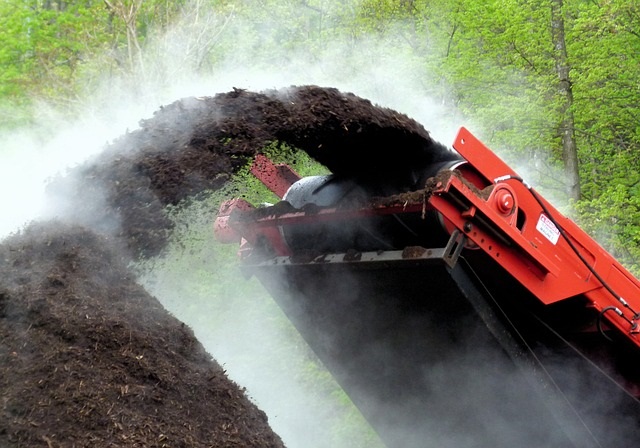Introduction:
What is solid waste?
Solid waste applies to a broad spectrum of rubbish materials that are abandoned as undesired and worthless as a result of animals’ and people’s actions. Amount of solid waste generated in a particular region by manufacturing, household, and commercial activities. Plastic, cardboard, glassware, aluminum, and biological garbage are all types of waste that can be classified. Solid waste, regardless of its basis, ingredient, or hazard potential, must be controlled in a methodical process to facilitate sustainability measures.
There are many examples of solid waste which are:
- Plastics wastes
- Food wastes
- Textile wastes
- Household waste
- Construction waste
For more info: Solid waste – Types, Sources, and Effects
What is solid waste management?
Solid waste management is defined as the practice that deals with the creation, storage, gathering, transfer or transmit, handling, and removal of solid waste materials in a way that takes into account a variety of community health, sustainability, financial, visual appeal, construction, and other environmental factors.
Also check out: Solid Waste Management Techniques
Ways to reduce solid waste:
- Use reusable bags for shopping
- Reuse water bottles, mugs of coffee
- Composting
- Using re-usable kitchen napkins
- Recycling
- Waste to energy techniques
- Organic biomass fertilizers
- Incineration
- Buy second-hand items
- Buying and selling online
1. Use reusable bags for shopping:
We can use re-useable shopping bags to prevent waste. To make you realize the importance of these types of bags, write BAGS at the top of your shopping list, or place them in the back of the car where they won’t be forgotten. Many supermarkets will refund you 5 cents for each bag, allowing you to save a few pennies while minimizing your consumption of single-use plastic bags.
Also read: The Impacts of Microplastic Pollution on the Environment
2. Reuse water bottles:
You may save money and decrease waste by using that reusable bottle. You’ll also limit your prospects of buying more expensive drinks on the move if you bring your water with you. This will get rid of the single-use bottles that they arrive in. While most buckets and bottles can be reused, they take a lot of energy to manufacture, ship to a bottling factory and then sell in stores. Read: Negative Environmental Impacts of Bottled Water.
3. Composting:
Compostable items include fruit and vegetable waste, peelings, coffee beans, yard waste, and twigs. Composting takes more time and work than the other lifestyle adjustments discussed above, but it will pay off in the long run. Depending on the circumstances, compost could be ready to use in your garden in 3 to 12 months. You’ll save money on fertilizers, and if you cultivate your vegetables, your returns will almost definitely improve. The organic material will also act as a sponge to soak up more moisture, this means you might not have to water your vegetation as much, rescuing your cash and effort. Also read: 15 Easy and Practical Ways to Reduce Food Waste
4. Re-useable kitchen napkins:
In the kitchen go paperless! Instead of using paper towels, switch to reusable washcloths and towels. In this way, we can eradicate solid waste management.
5. Recycling:
Solid waste must be appropriately managed to reduce ecological and health concerns, which includes management, gathering, and safe disposal. Around the same time, solid trash provides jobs and training opportunities for the urban poor. There are three ways to recycle waste i.e. energy, mechanical and chemical ways.
6. Waste to energy techniques:
The transformation of non-recyclable solid waste into useful energy, electricity, or biofuel by a range of methods such as burning, incineration, decomposition, anaerobic digestion, and waste gas recovery is known as energy recovery from waste.
7. Incineration:
The trash is converted into ashes, exhaust gases, and energy during incineration. Before being released into the atmosphere, gaseous products must be cleansed of pollutants such as particulate. The heat created by incineration can be used to generate electricity in some instances.
8. Organic biomass fertilizers:
It is caused by the actions of microbes, the biological matter will decay in the excavated solid waste. The garbage breaks down in aerobic conditions until the aerobic bacteria have used up all of the oxygen in the newly deposited fill. It’s an environment-friendly way to eradicate solid waste.
You might also like: What is Biodynamic Farming? – Methods and Advantages
9. Buying Second-hand items:
We should adopt this habit to eradicate solid waste. Before you buy new stuff, think about getting it used. This will save you a lot of money. In this way, you will be helping small charity organizations as well as preventing products from ending up in the landfill by buying used items.
10. Buying and selling online:
Pay your bills through the internet! Going paperless with your bank and other bills is a great way to help the environment. This way helps to eradicate solid waste. For more info: Why Should We Go Paperless And How Will It Impact Our Earth?
11. Going Paperless:
Go paperless – avoid using paper as much as you can. In this day and age of digital gadgets, it’s not that difficult. For tips on how to go paperless, read: 10 Simple Ways To Go Paperless At Home And In Your Business.
Conclusion:
It is concluded that these all are possible ways to eradicate solid waste. These all are environment-friendly techniques that prevent pollution. So we can follow these ways to minimize pollution.
You might also be interested in: Disastrous Environmental Impacts of Radioactive Waste
We hope you all liked this post! Please comment below if you have any suggestions, comments, or feedback! We at #envpk love hearing from our readers! Thanks!




